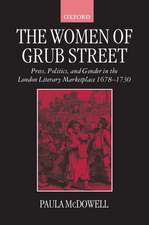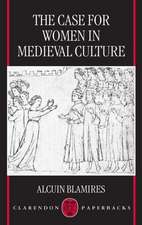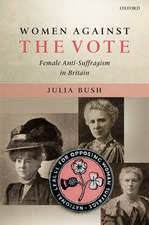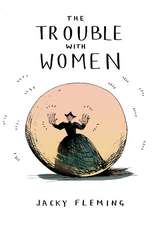The Politics of Public Housing: Black Women's Struggles against Urban Inequality: Transgressing Boundaries: Studies in Black Politics and Black Communities
Autor Rhonda Y. Williamsen Limba Engleză Paperback – 23 feb 2006
Din seria Transgressing Boundaries: Studies in Black Politics and Black Communities
-
 Preț: 252.69 lei
Preț: 252.69 lei -
 Preț: 250.78 lei
Preț: 250.78 lei -
 Preț: 306.82 lei
Preț: 306.82 lei - 17%
 Preț: 218.61 lei
Preț: 218.61 lei - 15%
 Preț: 249.75 lei
Preț: 249.75 lei - 7%
 Preț: 158.14 lei
Preț: 158.14 lei - 18%
 Preț: 163.62 lei
Preț: 163.62 lei - 19%
 Preț: 253.64 lei
Preț: 253.64 lei - 18%
 Preț: 347.82 lei
Preț: 347.82 lei - 27%
 Preț: 398.02 lei
Preț: 398.02 lei - 9%
 Preț: 496.48 lei
Preț: 496.48 lei - 23%
 Preț: 346.30 lei
Preț: 346.30 lei - 11%
 Preț: 295.71 lei
Preț: 295.71 lei - 7%
 Preț: 179.98 lei
Preț: 179.98 lei - 31%
 Preț: 450.94 lei
Preț: 450.94 lei - 23%
 Preț: 381.43 lei
Preț: 381.43 lei - 7%
 Preț: 186.35 lei
Preț: 186.35 lei - 11%
 Preț: 245.35 lei
Preț: 245.35 lei - 20%
 Preț: 266.75 lei
Preț: 266.75 lei
Preț: 250.90 lei
Nou
Puncte Express: 376
Preț estimativ în valută:
48.02€ • 52.18$ • 40.37£
48.02€ • 52.18$ • 40.37£
Carte tipărită la comandă
Livrare economică 11-17 aprilie
Preluare comenzi: 021 569.72.76
Specificații
ISBN-13: 9780195306514
ISBN-10: 0195306511
Pagini: 320
Ilustrații: 21 halftones & line drawings
Dimensiuni: 226 x 154 x 18 mm
Greutate: 0.46 kg
Editura: Oxford University Press
Colecția OUP USA
Seria Transgressing Boundaries: Studies in Black Politics and Black Communities
Locul publicării:New York, United States
ISBN-10: 0195306511
Pagini: 320
Ilustrații: 21 halftones & line drawings
Dimensiuni: 226 x 154 x 18 mm
Greutate: 0.46 kg
Editura: Oxford University Press
Colecția OUP USA
Seria Transgressing Boundaries: Studies in Black Politics and Black Communities
Locul publicării:New York, United States
Recenzii
"This is an important book that should be read by policy makers, activists, and scholars alike. The story of public housing is one that needs to be remembered." --Political Science Quarterly
"Williams has exquisitely and mercifully corrected the deeply etched image of public housing as an utter failure. Her carefully researched, well-written and critically balanced study of public housing forces housers, historians, political scientists, and sociologists alike to reconsider the pall of negativism that at least since 1957 has beclouded all conversation about public housing and about the enduring need for government support for decent, low-income housing."--The Journal of American History
"Well-researched, well-written.... Highly recommended."--Choice
"Her carefully researched volume chronicles the personal lives and political activism of the low-income women who voiced their claims for 'rights, respect, and representation' in public housing and beyond. Using personal histories culled from more than 50 interviews, Williams vividly demonstrates these women's setbacks and triumphs.... this is a valuable look at social welfare policy."--Publishers Weekly
"Baltimore native Williams demonstrates how poor black women mobilized to address the evolving crisis in Baltimore's public housing. In the 1930s and 1940s, Baltimore's segregated public housing served mostly whites, but both black and white residents felt grateful for the new apartments. Before long, local corruption and obdurate racism along with income caps and white mobility left public housing only to the black poor. City officials ignored deteriorating buildings and rising crime rates, while urban renewal further displaced and isolated poor black families. The Civil Rights Movement, the War on Poverty, and the welfare rights movement found a ready constituency in the projects, and black women became "part of the vanguard of community activists"--Cynthia Harrison, George Washington University, Library Journal
"There are far too few books from the perspective of poor black women, even fewer that give them the credit they deserve for pushing local, state and federal governments to fulfill the promises of the New Deal and the War on Poverty. Rhonda Williams' beautifully written and sweeping narrative makes fresh and important contributions to urban history, African-American women's history and the history of poverty policy in this country."--Annelise Orleck, author of Common Sense & A Little Fire
"A remarkable piece of work, doing for Baltimore what Making of the Second Ghetto did for Chicago. Williams brings welcome new light to bear on the struggle of poor Black women for respectability and inclusion, inclusion on their own terms. Drawing on a rich data set covering forty years, Williams renders vivid portraits of individuals while also conveying a clear conception of the changing societal trends and public policies with which they had to contend." --Charles Payne, author of I've Got the Light of Freedom
"An innovative study of the history of the activist work of low-income black women. Deeply researched and eloquently rendered, this book provides a new model for understanding urban political history--not from the bottom up, but from the inside out." --Barbara Dianne Savage, author of Broadcasting Freedom
"The Politics of Public Housing presents a new face and place of civil rights struggle-poor women in the Baltimore "projects" and their mobilization for adequate housing, income, education, and dignity. Rhonda Williams has written an illuminating and provocative study of black women who waged their own war on poverty in the 1950s and 1960s."--Evelyn Brooks Higginbotham, author of Righteous Discontent
"Moving from the New Deal and WWII through the War on Poverty and the new social movements of the 1970s, The Politics of Public Housing illuminates the grassroots activism of poor black women for decent shelter and adequate income in fresh and surprising ways. After Williams, scholars will have to consider housing as a major domain of the welfare state. Hers is a most important study." --Eileen Boris, editor (with Nupur Chaudhuri) of Voices of Women Historians
"Williams has exquisitely and mercifully corrected the deeply etched image of public housing as an utter failure. Her carefully researched, well-written and critically balanced study of public housing forces housers, historians, political scientists, and sociologists alike to reconsider the pall of negativism that at least since 1957 has beclouded all conversation about public housing and about the enduring need for government support for decent, low-income housing."--The Journal of American History
"Well-researched, well-written.... Highly recommended."--Choice
"Her carefully researched volume chronicles the personal lives and political activism of the low-income women who voiced their claims for 'rights, respect, and representation' in public housing and beyond. Using personal histories culled from more than 50 interviews, Williams vividly demonstrates these women's setbacks and triumphs.... this is a valuable look at social welfare policy."--Publishers Weekly
"Baltimore native Williams demonstrates how poor black women mobilized to address the evolving crisis in Baltimore's public housing. In the 1930s and 1940s, Baltimore's segregated public housing served mostly whites, but both black and white residents felt grateful for the new apartments. Before long, local corruption and obdurate racism along with income caps and white mobility left public housing only to the black poor. City officials ignored deteriorating buildings and rising crime rates, while urban renewal further displaced and isolated poor black families. The Civil Rights Movement, the War on Poverty, and the welfare rights movement found a ready constituency in the projects, and black women became "part of the vanguard of community activists"--Cynthia Harrison, George Washington University, Library Journal
"There are far too few books from the perspective of poor black women, even fewer that give them the credit they deserve for pushing local, state and federal governments to fulfill the promises of the New Deal and the War on Poverty. Rhonda Williams' beautifully written and sweeping narrative makes fresh and important contributions to urban history, African-American women's history and the history of poverty policy in this country."--Annelise Orleck, author of Common Sense & A Little Fire
"A remarkable piece of work, doing for Baltimore what Making of the Second Ghetto did for Chicago. Williams brings welcome new light to bear on the struggle of poor Black women for respectability and inclusion, inclusion on their own terms. Drawing on a rich data set covering forty years, Williams renders vivid portraits of individuals while also conveying a clear conception of the changing societal trends and public policies with which they had to contend." --Charles Payne, author of I've Got the Light of Freedom
"An innovative study of the history of the activist work of low-income black women. Deeply researched and eloquently rendered, this book provides a new model for understanding urban political history--not from the bottom up, but from the inside out." --Barbara Dianne Savage, author of Broadcasting Freedom
"The Politics of Public Housing presents a new face and place of civil rights struggle-poor women in the Baltimore "projects" and their mobilization for adequate housing, income, education, and dignity. Rhonda Williams has written an illuminating and provocative study of black women who waged their own war on poverty in the 1950s and 1960s."--Evelyn Brooks Higginbotham, author of Righteous Discontent
"Moving from the New Deal and WWII through the War on Poverty and the new social movements of the 1970s, The Politics of Public Housing illuminates the grassroots activism of poor black women for decent shelter and adequate income in fresh and surprising ways. After Williams, scholars will have to consider housing as a major domain of the welfare state. Hers is a most important study." --Eileen Boris, editor (with Nupur Chaudhuri) of Voices of Women Historians
Notă biografică
Rhonda Y. Williams is Associate Professor of Women's Studies and History at Case Western Reserve University.













